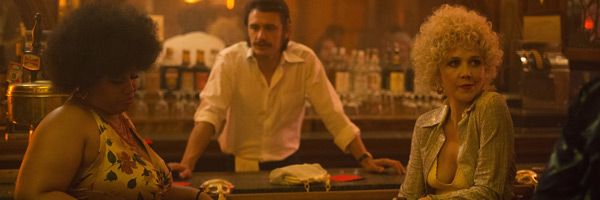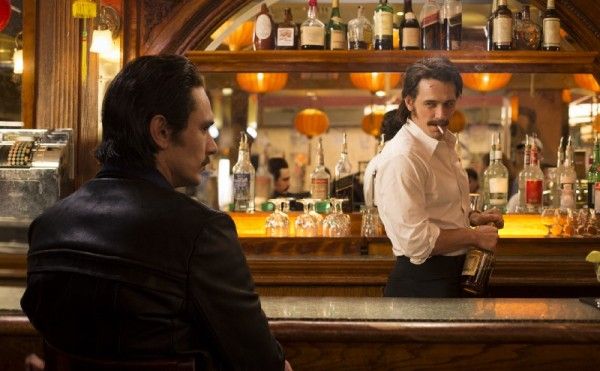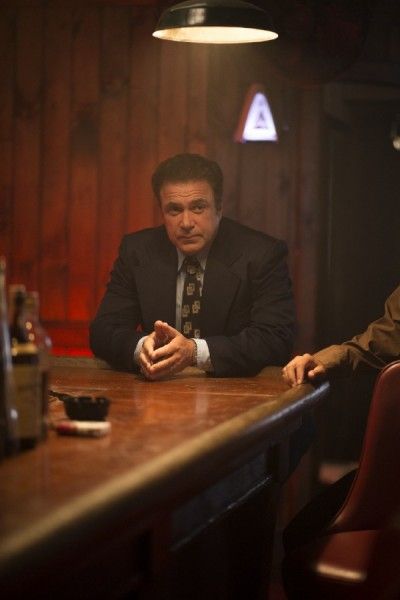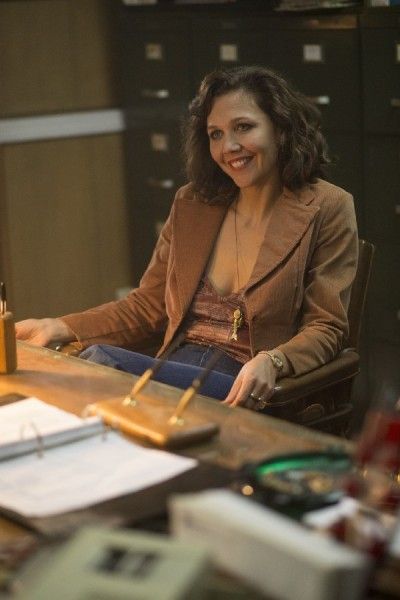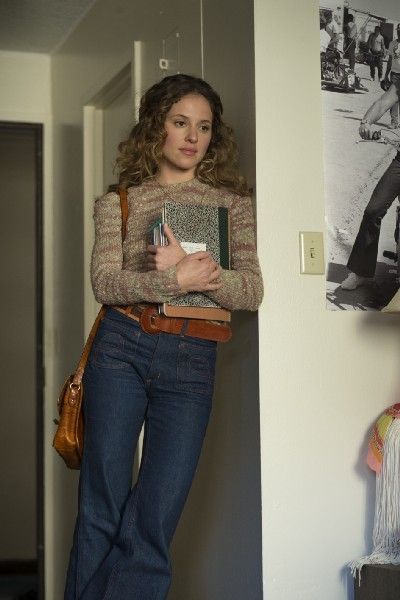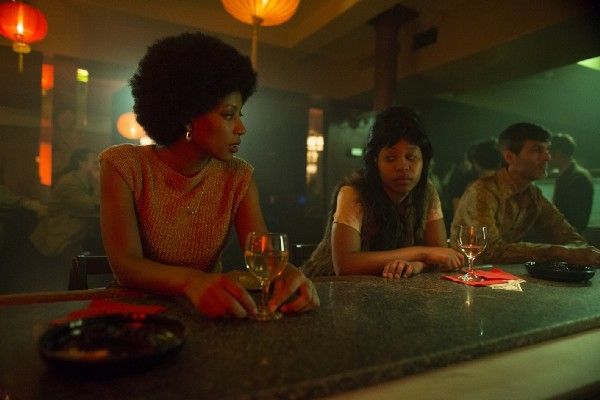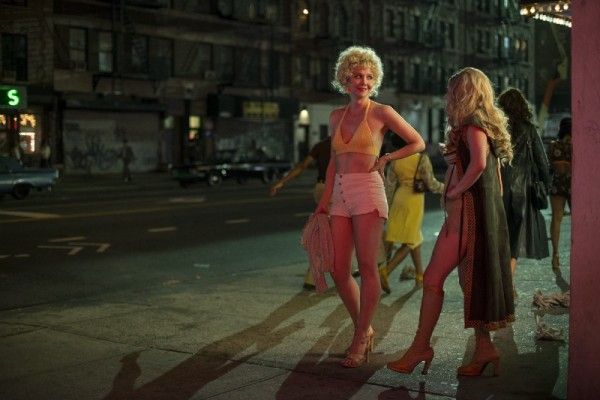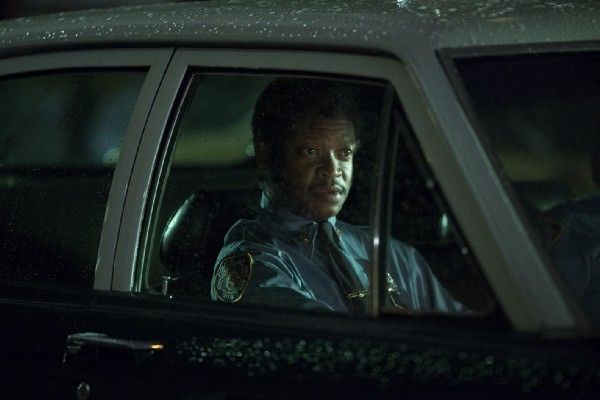From show creators David Simon and George Pelecanos, the HBO series The Deuce, named after the local slang for New York’s 42nd Street, chronicles the time when the sex industry went from back alleys to a billion dollar business. As twin brothers Vincent (James Franco) and Frankie Martino (also James Franco) navigate their way through Times Square in 1971, the earliest pioneers of the flesh trade, including pornographers, hookers, pimps and adult bookstore owners, have to dodge the law while figuring out how to make the most of their situation.
Executive producers/writers David Simon and George Pelecanos sat down with Collider for this fascinating chat about how The Deuce evolved into what it is now, why they wanted to explore these particular aspects of the porn and sex industry, why James Franco was the right actor to center this story around, gaining the trust of their cast, ensuring they would have female voices, making sure the nudity was never gratuitous, why this is a three-season story, and the challenges of getting the type of shows made with the subjects they want to explore.
Collider: How did you guys come to be working on this, exploring this subject?
GEORGE PELECANOS: A guy who was on the crew of Treme brought us a man who owned a bar in Times Square that was mobbed up. This guy was uncharacteristically an honest guy. He was giving the mafia money, to the penny, and they started giving him more responsibility because he was that guy. He was a good manager and he was honest, so he was given some massage parlors and other things, along the way, and it grew. Really, the thing that got us hooked was that this bar he had became a place where a lot of different kinds of people hung out in Times Square, whether they were prostitutes, pimps, porn actors or transgender. Any kind of freak you could think of were welcome there, which was really unusual.
DAVID SIMON: Along with theater goers and tourists. He was very egalitarian about trying to bring in the most number of people. We were genuinely reluctant because when we were told that it would deal with the beginning of the American sex industry, George and I thought, “Well, that sounds not only gratuitous, but a little bit distasteful.” We were reluctantly convinced to go meet this guy, the next time we were in New York for editing, and we did. He was the surviving half of twin brothers who were there at the origins of this new industry. At a certain point, we pretended that we needed to go have a smoke. We were meeting in somebody’s apartment, and neither one of us smoke, but we went down and walked around the block and talked about what we were hearing. The guy’s stories were so human and palpable, and comic and tragic, all in the same instant, that we were saying to each other, “Man, we’re gonna have to do this.” That was five years ago.
PELECANOS: Yeah, it’s been awhile. He died.
SIMON: He died just before the pilot.
PELECANOS: We knew it was gonna be a challenge to tell the story, but the characters were too rich to ignore. We couldn’t get them out of our minds, really.
Is that what made you decide to tell this story through twins?
SIMON: Yeah, that was true. We didn’t make that up. That was not a Hollywood device. One brother was killed and we never met him, but his story was entwined with his brother and their brother-in-law. It was a triumvirate of people that were engaged in this, so we wrote them as they were. We used it as a jumping off point and we fictionalized the names because it seemed fair. They have families and everything. But, we took the given that was the reality and we ran with that. The more he told stories, the more entangled they were in our minds. We really backed into it.
When you have a role like this, that is twins, it seems like you’d have a lot of actors interested, but that the subject matter could make some people hesitant. How did you come to James Franco?
SIMON: I had been talking to him about other projects, as well. We’d been in conversations about other things. When George and I had completed what was our latest version of a plausible script, it was Michael Lombardo at HBO that said, “The script seems more and more solid. Who can we get to play the lead?” At that precise moment, I had just finished talking to James about something else and he said, “Well, what else have you got?” I said, “Take a look at this,” and he jumped at it. It’s a wonderful challenge for an actor to play twins, and to try to find two different voices that are the same, but not the same. Producers are less enamored of it when you’re waiting for twin #2 to come out of the make-up trailer, and you’ve just sent him back for the third time of the day. It’s a logistical challenge, but I think James did wonderfully with it.
PELECANOS: We didn’t let him off the hook. The twins look alike. We didn’t give one of them buck teeth or a mustache. He had to differentiate them with his posture, the way he walks and his manner of speaking, and he did it. That was all him.
Were you nervous about him also taking on episodes as a director while he was acting as twins?
SIMON: Yes! He’s an accomplished director with his indie work, but this was a much larger crew that he was working with, for the first time. I have to give him credit, I knew he was in for good and for keeps when he got on the scout van, three weeks ahead of his episode, to do the preliminary scouts. It wasn’t even the final tech scout, it was dragging ass through three and a half boroughs in 12 hours, in the back of a van, and there was James Franco sitting next to his A.D. He did the grunt work. That endeared him to us and to the crew.
How did Michelle MacLaren get involved, directing the pilot? Did you intentionally want to get a female voice in this?
SIMON: There are female voices throughout, not just Michelle on the pilot, although she was an incredibly valuable voice that set that tone and template for the show. In the writers’ room, we’ve always tried to choose from novelists, rather than a lot of TV writers. It’s usually novelists and people who know the event, whether it’s people who lived in New Orleans or near Times Square, during that time. This time, we took Megan Abbott and Lisa Lutz because it couldn’t be and it shouldn’t be the boys reflecting on porn, and giving you our thoughts on what pornography is and why it exists. We needed arguments in the room that were healthy and discussions that were healthy. But Michelle got involved because she had a deal with HBO to do something, and they kept sending her pilot scripts and movies, and a lot of stuff. She got to ours and wanted to talk about it. We had some long conversations about what we were going for and why we were doing this, which were entirely appropriate. And then, she was in. It was certainly HBO wanting to work with her, but we were inclined to work with her, after those conversations.
PELECANOS: She directed the last episode, too.
This material definitely could have been handled very differently, in someone else’s hands.
SIMON: It could have been handled very badly. We really thought about what we were doing and why because there’s probably been 20 or 30 porn pilots that have gone to premium cable since they got rid of the advertisers. Everyone thinks they’ve got a porn show that should be done, but they never get done, or they never go past the pilot. We didn’t do this ‘cause we were particularly interested in making something that was provocative. This guy gave us a world that was really interesting to us, not just for character. The characters are great, but it’s an interesting critique of market-based capitalism and what happens when the product is under the table in a brown paper bag, and then, suddenly, all bets are off. Who were the pioneers? Who were the first in? That Times Square isn’t there anymore, but a multi-billion dollar pornography industry that has transformed American society is very much with us. There seemed to be reasons to do it, and there were also reasons not to do it. We had to make sure that we followed the right reasons.
This is a subject that could feel very sleazy or exploitative, and this series is neither of those things, even though there is nudity from both genders. Was the nudity something that was very thought out and deliberate, when you did decide to use it?
PELECANOS: Sometimes you’d get in the editing room and make those decisions. It would be about, “Are we lingering on her breast for five seconds too long?,” and that kind of thing. Also, our partner, Nina Noble, would talk to the actresses before every scene where there was nudity. They would have meetings about it, and we made sure that everybody was on the same page. All of these people had to trust us because we hadn’t worked with them before. We have a body of work that I think is pretty good, but they had to trust us. That’s not really something we can answer, but I think that they did, after they saw what we were doing.
SIMON: The scripts didn’t read gratuitous, but you don’t know what the film is going to look like. Actors have to go out and be in character, and they can’t be thinking about every frame of the film. We had to assure them that we weren’t, in any way, interested in making porn to critique porn. That’s an indulge that we were not allowing ourselves. But still, there had to be a lot of professionalism from everybody. I can tell you that I’ve never met an actor more brave than Maggie Gyllenhaal. Maggie said, “Listen, this is interesting and I’ll go for it, but if I’m gonna go for it, it better be for the right reasons.” She really wanted to explore that and make sure that we weren’t chasing something different. You’ve gotta respect that.
Have you thought about how much more story you’d like to tell?
SIMON: Assuming that all the critics in the world don’t come down on our heads and it finds an audience of some sort, it’s planned for two more seasons. The ensuing season will be in the late’70s, after these characters have been around, in this world, for about four or five years. And then, the final season we’ve planned for is ‘85/’86, which is when Times Square came crashing down around their heads. That would conclude it.
Are you looking to follow the same characters?
SIMON: The same core characters will last, I think, although in this life, there’s obviously a lot of attrition. Not everyone will be where we left them, five years later.
David, you’ve done so much terrific work on television and the subjects that you’ve explored have been so interesting. I feel like I learn something every time I watch one of your shows. Are there subjects that you still want to explore?
SIMON: Sure. There’s stuff that I can’t get made, and George, too. You never run out of material. You just run out of the logistics and the ability to get to it all. For me, I never want to do the same show twice. There are a lot of tropes in television about what works. Cop shows work. Hospital shows work. Life and death works. To an extent, and I mean this in the soft core sense of it, porn works. Pretty people having sex works. Action works. Laughter works for sitcoms. But after you get out of those solid, we can count on these tropes, there’s no guarantees. There’s all these different worlds that you’d love to write about, but will people come and will you be able to sustain it? I don’t know.
PELECANOS: Well said!
SIMON: With Treme, we were trying to sustain a world that we very much loved. Somewhere around Season 2 of Treme, it became utterly apparent to us that it’s a lot easier to put a gun in somebody’s hand or put two people in bed, than it is to have some guy walk down the street with a trombone, going to a gig. I wanted to tell that story, as much as I wanted to tell a gangster story or a war story, but television has certain expectations about what’s supposed to happen in a given hour.
How do you deal with the frustration of that, when you have something that you know could be really good, but people just don’t want to hear it?
SIMON: You try to do what you can. You go into the room and try to sell it.
PELECANOS: The good news is that you do get to do stuff that you want. We’re always dealing with that. I can write any kind of novel I want, any time, and sell it, but there’s not that many people watching it. Even a low-rated TV show is a couple million more people than read my books. You want to be read, in essence. If you’re a television writer, you’re a writer and you want people to read your stuff. You’re still reaching a bigger audience, that way. That’s a philosophical way to look at it.
SIMON: To be a New York Times bestseller, if you sold 100,000 hardbacks, you’d make the list. But if 100,000 viewers tune in on Sunday night, you’re in trouble. The economy of scale is such that you can’t really blame the network executive who looks at you and says, “Man, I’m not seeing a show in that.” They gave me six hours for public housing policy (for the HBO mini-series Show Me A Hero), and that was a miracle. Maybe they regret it. They don’t, but it didn’t exactly pull an audience.
PELECANOS: We’ve wanted to do a history of labor show for years, with all of these big events. It’s an important show, I think, especially now, but their eyes just cloud over when we start talking about it. I think it would be great and interesting and entertaining. I know we could do that.
SIMON: In terms of what’s gone wrong in the West with the economic model, the decline and fall of labor and the triumph of mass capital is the story of our lifetimes. It’s been coming since 1980, and we’ve now reached that critical mass moment. But you start talking about the Ludlow Massacre or the Haymarket out in L.A. and it’s an industry that’s impervious to the recession, much less economic tribulation. It’s everything that matters, and they’re just like, “Yeah, no.” If you say, “Okay, it’s a buddy cop movie, and he doesn’t obey the rules and his sergeant hates him, and his partner is a dog from Mars,” they’ll say, “Okay."
So, do you just keep trying, or do you have to shelve an idea that you really want to do, until there might be a better time to convince someone to do it?
PELECANOS: I think The Deuce is unlike any other show you’ll see on television. That’s perseverance.
SIMON: There were a lot of channels that might have made a porn show, but I don’t know that it would have turned out like it turned out. I’ve gotta credit HBO with not wanting to see this show written to be prurient.
PELECANOS: Nobody ever said, “Can we have a little more nudity?,” or “Could you cast this actress instead? She’s a little hotter.” You get those notes from other networks. “Can she wear the low-cut blouse instead of the turtleneck?” We’ve never come up against that, in what we’ve done.
SIMON: If you never show the product, than you’re almost being puritan about it and there’s almost an implied content of the characters, but you also can’t be prurient or leary. If you fall off of that fence, in either direction, you’ve failed. The notes we got on that, from HBO, were very good and very solicitous of the same concern. I’m not sure that would have been the case, in other places.
The Deuce airs on Sunday nights on HBO.

